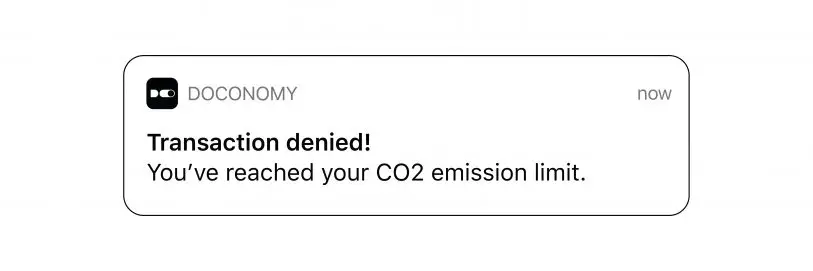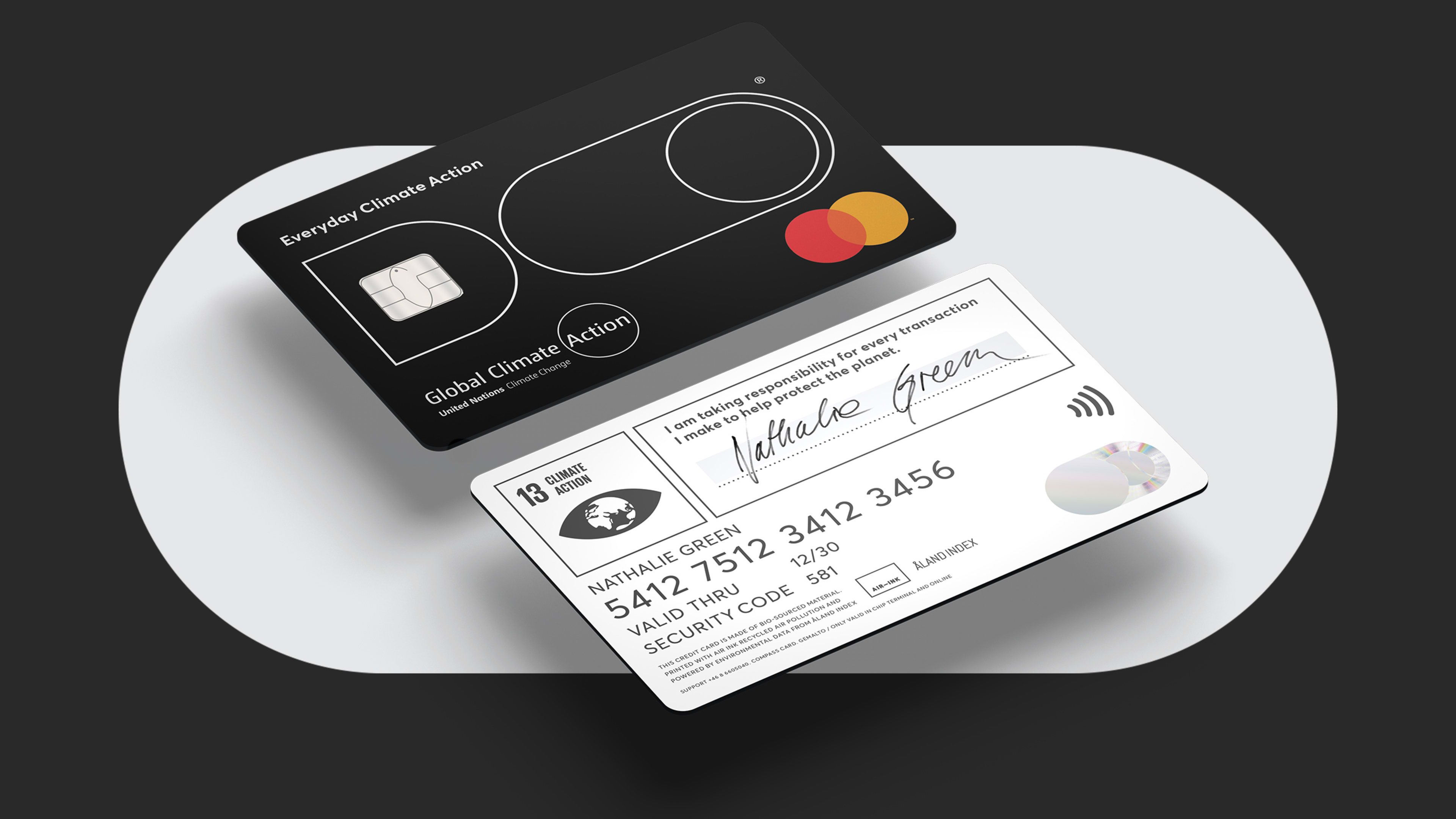When you use a new credit card, it will eventually cut you off—not because you’ve reached a financial limit but because your purchases have tipped you over your carbon limit for the year.
“We realized that putting a limit that blocks your ability to complete the transaction is radical . . . but it’s the clearest way to illustrate the severity of the situation we’re in,” says Johan Pihl, one of the founders of Doconomy, a Sweden-based think tank that is launching the new card in collaboration with the UN Climate Change Secretariat and Mastercard. “We need to address how our consumption is impacting our planet.”
Doconomy is launching two versions of the card later this year. One just tracks your carbon footprint as you spend, and the other, called Do Black, takes the additional step of setting a hard limit on your footprint for the year. Initially, the data used to calculate the impact of each purchase will be imprecise—the system pulls the category code of a merchant that classifies it as a particular kind of store, then makes a calculation based on the general carbon footprint of the industry, whether you’re buying something from a fast-food joint, a clothing store, or an airline. The limit is based on a country-specific calculation of how much carbon each citizen can emit to stay on track with the 2030 goal to cut emissions in half.

In the future, the calculation of impact will be tied to specific line items on a receipt to make it more accurate. Others are working on similar solutions; a startup nonprofit called Poseidon Foundation is beginning to work with retailers to track the impact of specific purchases and let customers instantly buy a carbon offset equal to their emissions. Ben and Jerry’s tested the concept at an ice cream shop in London last year.
Doconomy will also connect consumers to offsets—all vetted through the UN—though it’s more interested in shifting consumption patterns than assuaging guilt. “This is a very educational effort more than anything else,” says Mathias Wikström, cofounder of Doconomy. “I mean, people will react to it like, ‘Oh, so you want me to stop spending?’ No, not necessarily. I want you to start understanding.”
If it begins to shift what people choose to buy, the card can also impact companies. “Imagine if the consumer would pick up our app and actually look at their footprint and that’s the basis for whether they buy something or not,” he says. “Obviously brands will respond to that. That’s a new currency of sorts.”
Consumers can’t solve climate change solely through their wallets, of course. The energy system needs to change. Cities need to be designed differently so people don’t feel the need to drive. We need to grow food differently. We need to redesign everything from airplanes to mobile phones. But while some changes have to happen within companies and governments, Doconomy recognized that there was power in wallets; in Sweden, for example, 60% of an individual’s carbon footprint is tied to consumption. At a mass scale, shifts in consumption can equate to meaningful reductions in a country’s larger footprint.
“It’s a very tangible tool for anyone who wants to understand how to make a difference and how to contribute to this,” says Wikström. “On a personal level, I think it’s hard—there aren’t many governments or many companies that are sharing their ideas on how to reach the 2030 goals. Everyone is talking about the fact that it’s important. But as a person, I’d like to understand more. When am I being too much of a burden? And when am I doing a good job? The [credit cutoff] with Do Black is one way of illustrating that. It’s a radical tool. It’s radical, but then again reducing CO2 emissions with 50% by 2030 is quite radical, too.”
Recognize your company's culture of innovation by applying to this year's Best Workplaces for Innovators Awards before the extended deadline, April 12.
